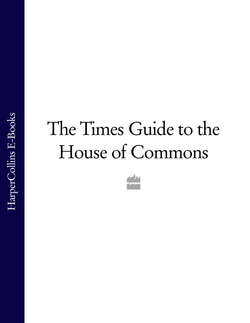Читать книгу The Times Guide to the House of Commons - Литагент HarperCollins USD, Ю. Д. Земенков, Koostaja: Ajakiri New Scientist - Страница 59
The growing powers of the humble backbencher
ОглавлениеPeter Riddell
Chief Political
Commentator
One of the great paradoxes of the House of Commons is that just as its public standing has hardly ever been lower, MPs have seldom been more hard-working or potentially more effective. Procedural changes over the past dozen years have given backbench MPs more chance to play a creative role at Westminster.
The “declinist” view of Parliament has, of course, been reinforced by the expenses scandal (as discussed in an accompanying article). There is nothing new in such complaints. There never was a golden age. Every generation has had protests that the executive is too strong and the legislature too weak but, as the Hansard Society’s Annual Audit of Political Engagement showed in March 2010, while the expenses row did not create a problem of trust, which has existed for many years, it did reinforce public scepticism. Less than two fifths of the public believe Parliament to be one of the two or three national institutions that have most influence on their everyday lives.
The counter view has been put most eloquently by Jack Straw, a former Leader of the Commons and closely involved in constitutional reform during his 13 years in the Cabinet. He argued, in a lecture to the Hansard Society in March 2010, that “the view that Parliament is irrelevant or powerless is complete nonsense”. He acknowledged that the institution was far from perfect, and the balance remained tilted in the Government’s favour, but changes in recent decades had strengthened the legislature. As Mr Straw pointed out, in the three decades from the mid-1940s until the mid-1970s, the executive was all powerful. Backbench MPs seldom rebelled: there were two whole sessions in the 1950s when not a single Conservative backbencher defied the whip and voted against the Government. There were few select committees. Those that did exist were mainly weak, apart from the Public Accounts Committee. Admittedly, many newspapers until the mid-to-late 1980s did carry full reports of what was said on the floor of the Commons, but radio broadcasting did not arrive on a regular and continuous basis until April 1978, and television cameras not until November 1989.
